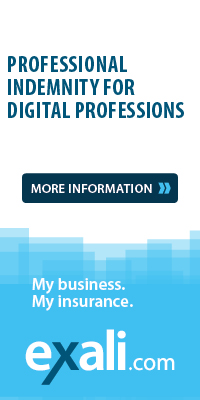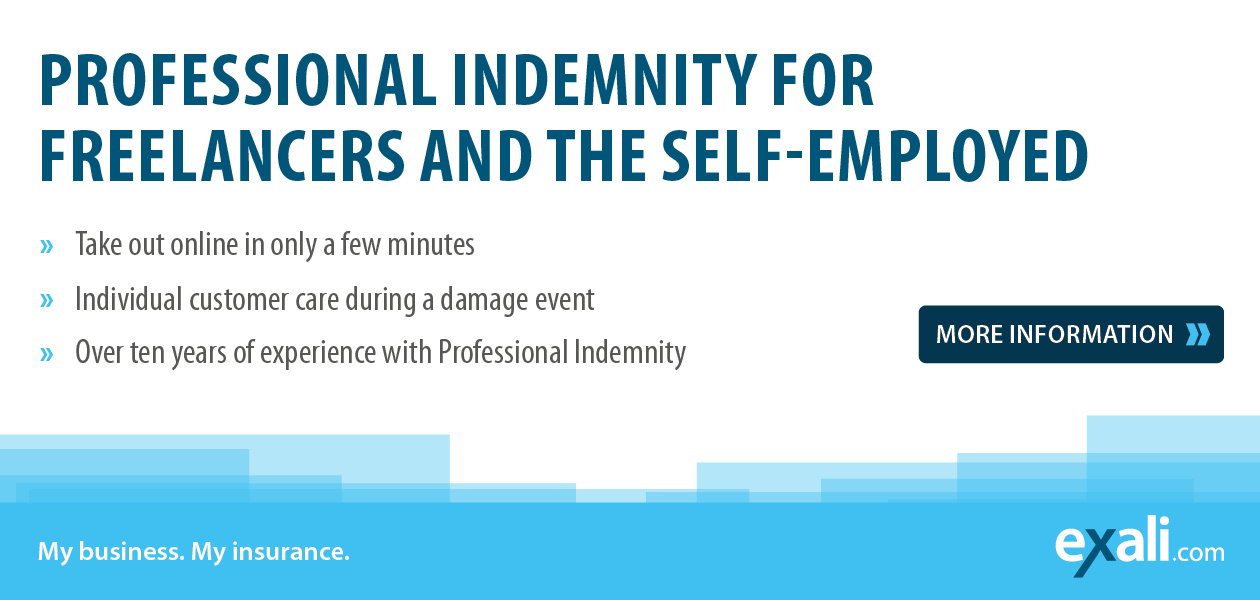Factoring: Advantages and Disadvantages For Self-Employed
When customers do not pay their invoices, this can cause serious liquidity problems for self-employed and entrepreneurs. So-called factoring companies want to remedy this situation by taking over outstanding receivables. This article explains how this works, whether these service providers are helpful and if every company can really benefit from them.
Factoring - The End of All Liquidity Problems?
If your customers are in arrears with their payments, this usually means the following for you: You invest a lot of time and nerves in a dunning procedure, at the end of which it is unclear whether you will ever get your money back.
But there are procedures apart from this practice. Instead of taking care of the management of receivables yourself, you can outsource your receivable to a factoring company and receive at least a large part of the amount due after deducting a fee. Although this principle sounds like a great labour-saving measure in general, it also has disadvantages. Only if you know these well you can determine whether factoring is helpful for your own business - or whether you should rather stick to standard receivables management.
How Does Factoring Work?
In simple words, the term "factoring" means that a company assigns receivables to a third party. It "sells" them to a service provider - the so-called factor. The factor takes over the invoice amount and pays it to you minus a fee. This procedure must be distinguished from debt collection to some extent. The purpose of debt collection is merely to collect overdue receivables. However, these are not bought by the provider, but only the dunning process is taken over. Factoring companies often also offer debt collection services, but these are only part of the portfolio.
For factoring to be a viable option for your business at all, at least the following two conditions should be met.
- The service on the invoice must have been provided in full.
- The client has not made any further claims, for example because of defects.
Let's look at the principle of factoring with a practical example: You run a software company where you develop customised software for your clients. Within the framework of an order, you develop software for 6,000 euros. After completing the job, you invoice your customer. Now you have the option of selling your receivables to a factor. Before the purchase, the factor checks the creditworthiness of the debtor. This step is important because in many cases the factor also bears the risk of default.
If the credit assessment is positive, the receivable can be sold. The conditions such as the term, number of receivables, fees and interest are contractually agreed by both parties. Now the factor reclaims the sum of 6,000 euros from your customers. If the sum is still not paid, the factoring provider usually takes over the dunning procedure and also bears the risk if the payment fails completely.
Factors do not provide this service for free, of course. Those who want to make use of it have to pay a fee, which is calculated according to various aspects. We will devote a separate paragraph to this point in the course of the article.
Customers who are unwilling to pay are a real nuisance for anyone who runs their own business. It is therefore all the more important to retain those with which the cooperation runs smoothly in the long term. Read the article to find out how to do this: Using the 6 Principles of Persuasion to Achieve Greater Business Success.
Advantages and Disadvantages of Factoring
At first glance, the factoring model seems like a panacea for problems with customers who are unwilling to pay, but it actually does not make sense for everyone. Therefore, you should know the advantages and disadvantages exactly in order to be able to determine whether it is worthwhile for you to use it.
Advantages
Factoring offers companies some work relief:
- Liquidity:
Factoring improves your business' ability to meet its own payment obligations. You don't have to wait for a long period of time for your customers' money, but your receivables are settled in a foreseeable period of time that is much shorter than the payment term specified in your invoices (usually up to 3 days). This allows you to increase your financial leeway. For example, you receive more cash discount because you can pay invoices early yourself. - Reduced risk:
Usually the factoring provider bears the risk of non-payment. If a debtor fails to meet a claim, you will still receive your money within the period agreed with the factor. This is much quicker than, for example, with trade credit insurance, which takes a long time to settle a loss suffered in this way. - Better rating:
If you run a business, factoring is a good way to improve the structure of your balance sheet. Since the factor provides protection against payment defaults, you can write off the outstanding receivable from your balance sheet and in this way not only get rid of a risk component, but also increase your equity ratio. In the best case, you also improve your credit rating. - Less effort:
Instead of having to manage outstanding payments yourself, you can outsource this effort completely to the service provider. The service provider issues invoices, sends dunning notices and also keeps an eye on the receipt of payments. This saves you a lot of effort, time and nerves in addition to time-consuming receivables management.
Disadvantages
As with everything, there are two sides to factoring. Because, as practical as this model may seem, not everyone benefits from it.
- Restrictions
Factoring does not make sense for all sectors, because it must be possible to precisely quantify outstanding payments. Therefore, this model is not possible for service providers who process project orders, because outstanding payments cannot be easily secured in such cases. Therefore, factoring is more suitable for online retailers, for example. It is also important that the service has already been rendered when the invoice is issued. - Costs
Factoring providers also have to finance themselves. They do this by charging a fee that is based on factors such as expenditure, risk and turnover. They also charge for checking the creditworthiness of their customers. In addition, interest may be incurred, similar to a traditional loan. However, with a traditional loan you would have to deposit collateral - this is not the case with factoring. - Customer Loyalty
Everyone has an interest in a good business relationship with the customer. This can also be destroyed by a badly managed dunning process. Therefore, the factoring partner should be well selected and the dunning process should be defined together with him/her.
Factoring Protects Against Payment Defaults - exali Takes Care of the Rest
While factoring protects you in the event of payment defaults by defaulting clients, Professional Indemnity Insurance through exali is there for you if, for example, you make a professional mistake that causes financial damage to clients or other third parties. If these parties now make claims for damages against you, the insurer will also check the legitimacy of these claims and, if necessary, settle the sum. If the claims prove to be unfounded, the insurer will defend them on your behalf.
You can also insure yourself against damage to your own business. Our optional AddOn First-Party Cyber and Data Risks Insurance (FPC) protects you against damage to your own IT systems due to cyber attacks. The insurer also covers the costs of IT forensics and crisis management.
How Much Does Factoring Cost?
The costs for factoring range between 0.5 percent and four percent of the receivable, depending on the provider. Particularly expensive service providers may charge five or six percent. Of course, the exact price also depends on the specific service provided (financing, dunning, risk assumption). A company with which a factor turns over more money usually gets more favourable conditions. The sector and creditworthiness also play a role. Some providers also offer the option of drawing up contracts in such a way that invoices are only taken over if the customer has a certain credit rating, or that other rates are agreed for a low credit rating.
Factoring Types
There are different types of factoring that a company can resort to depending on its needs.
Full-Service-Factoring
This is the standard of factoring offers. Providers in this segment take over the receivables, bear the default risk and take care of the dunning process and invoicing. This all-round service is ideal for small to medium-sized companies that do not have their own large accounting department.
Inhouse-Factoring (Bulk-Factoring)
Providers in this sector primarily take care of securing and financing receivables. Receivables management, including dunning, however, remains with the company. The company must continue to ensure that defaulting customers pay. The factor merely advances the outstanding amount and bears the default risk. Therefore, this option is primarily worthwhile for larger companies.
Maturity Factoring
Here the contracting company benefits from being able to pass on the risk to third parties and outsource receivables management. However, the advantage of quick liquidity is lost. This is because with maturity factoring the focus is more on handing over accounting tasks and simplified financial planning. The reason for this is that specific payment dates can be agreed with the factoring service provider that are not dependent on the debtor's payments. In practice, however, this approach is rather rare.
Real and Unreal Factoring
If the factoring service provider bears the default risk, then this is so-called "genuine" factoring. Providers who engage in non-genuine factoring do not bear this risk. They do not buy the receivables from a company. Of course, the business cannot relieve its balance sheet in this way.
Open and Silent Factoring
In silent factoring, the provider sends out reminders and invoices on behalf of the company that has commissioned him. In open factoring, the opposite is the reality: the factor himself approaches the client and informs him that he has taken over the receivable. A request for payment is issued then. This variant can be advantageous in so far as in some cases a third party provides more emphasis for a claim. However, you should be careful not to leave the communication in the dunning process exclusively to the factor.
Factoring For Self-Employed: Is It Worth It?
For a long time, factoring was considered something that only offered real added value for large companies - because many providers only took on receivables if a certain amount of money was collected each year. This is no longer the case today: many factoring companies have now also tapped into small companies and the self-employed as a target group.
A broad customer base makes it much easier to make the most of factoring for your business. Our article 5 Tips for Freelance Client Acquisition helps to attract new customers.
You may also be able to use the newly gained liquidity to get price discounts in purchasing. Full-service factoring, which takes care of everything from payment requests to dunning, is a good solution for small businesses in particular, as it allows them to outsource any amount of effort.
Also helpful for the successful use of factoring is a broad customer base and standardised products or services that can be easily priced. Companies that are positioned in this way often receive better conditions for factoring.

Vivien Gebhardt is an online editor at exali. She creates content on topics that are of interest to self-employed people, freelancers and entrepreneurs. Her specialties are risks in e-commerce, legal topics and claims that have happened to exali insured freelancers.
She has been a freelance copywriter herself since 2021 and therefore knows from experience what the target group is concerned about.









